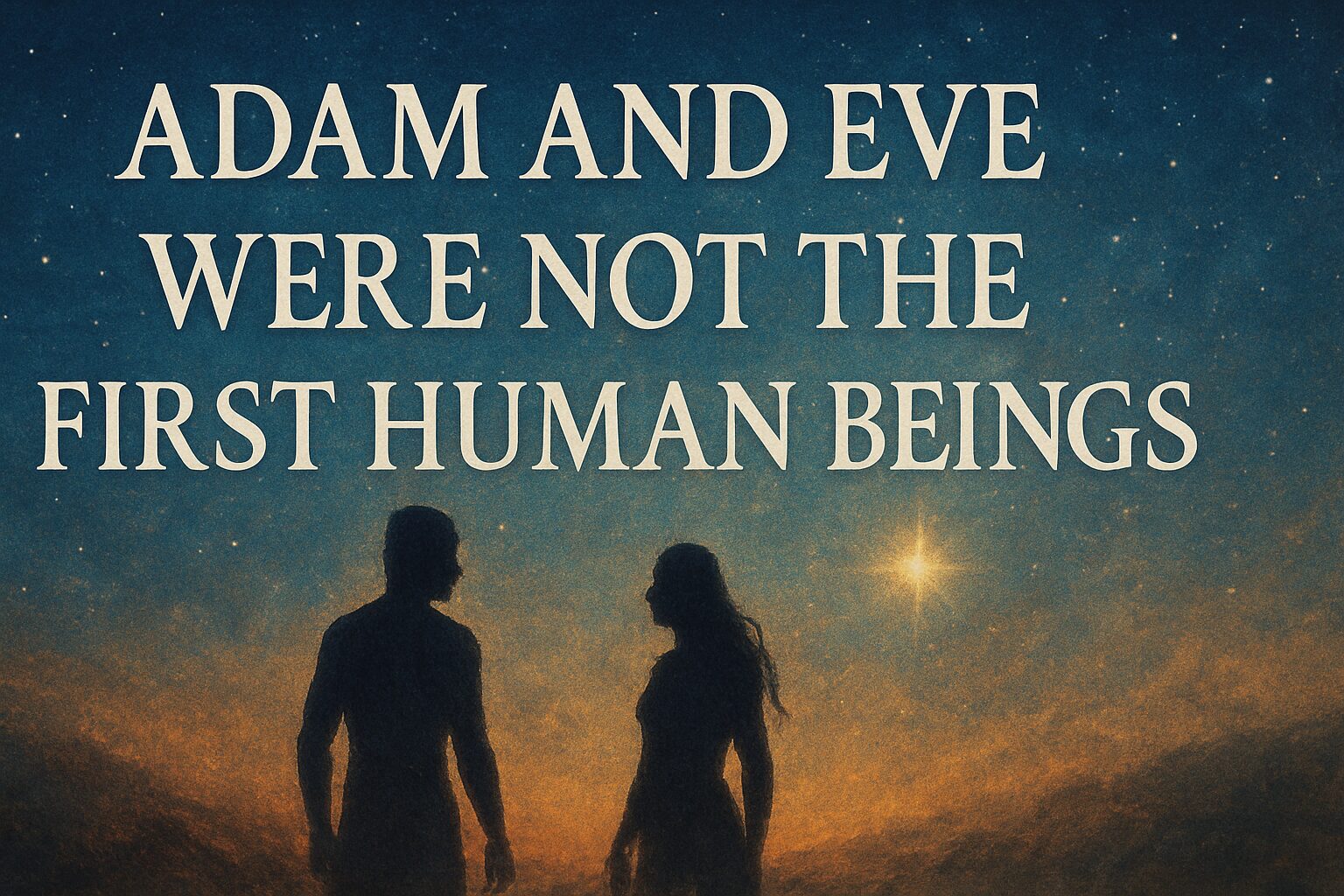This article is a sequel to the following article that explains the origin of humanity according to the Quran:
In short, the previous article talked about how everything in existence in this universe had a previous life. We committed an original sin, which caused God to altogether give us two pathways of redemption. One path is to be born in this universe as non-living things, or living things, and be in continuous worship of God through natural instincts that God gave, or the laws of nature.
The second path to redemption is that beyond natural instincts, one must consciously worship God alone and follow the moral code that comes from God. This path is known as the “Trust”.
A select minority of the heavenly population chose to uphold the Trust and became born as Homo sapiens, starting with Adam and Eve.
The rest were wiser and chose the first, and safest, option.
Adam: First Moral Agent, Not First Human
The idea that Adam and Eve were the first ever biological humans is a biblical idea that is not supported by the Quran.
The Quran never plainly states that these two were the first ever humans.
Rather, verse 36:60 and 7:172 states that Adam was the first of a lineage of humans who were bound by the Trust, or a pledge to God to recognize God as Lord and avoid worshipping the devil when being reborn into Earth.
The rest of the creatures were reborn as plants, animals, rocks, mountains, water, stars, bacteria, and some were even early human species.
So this makes Adam only the first human being to be born among the group of people who accepted the Trust, rather than the first biological human being.
And we know that Adam and Eve were a human species that was capable of language because the Quran shows that his two sons were able to speak a language very fluently.
- [5:27-28] And recite upon them the information of Adam’s two sons truthfully, when both offered a sacrifice, but it was accepted from one of them and was not accepted from the other. He said, “I will indeed kill you!” He said, “God only accepts from the reverent. If you extend your hand towards me to kill me, I will not extend my hand towards you to kill you. Indeed, I fear God, the Lord of the worlds.”
It is commonly believed that any human species before Homo sapiens, Neanderthals, or Denisovans were incapable of complex spoken language like us modern humans.
However, in archaeology, the fossil record shows many human species before those three, such as: Homo habilis, homo heidelbergensis, homo ergaster, homo erectus, homo rudolfensis, homo antessor, etc. None of these had the language capabilities that modern humans, neanderthals, and Denisovans had.
And according to anthropology, the Neanderthals, Denisovans, and Homo sapiens evolved separately. Us Homo sapiens did not evolve directly from Neanderthals and vice versa.
- That means if we humans are Homo sapiens, and our ancestor is Adam and Eve, then they too were Homo sapiens.
- And if Adam and Eve were Homo sapiens like us, and the fossil record confirms that many human species before homo sapiens existed, and certain species (like Neanderthals and Denisovans) existed on Earth at the same time that Homo sapiens existed on Earth, then Adam and Eve were certainly not the first biological humans to ever exist on Earth.
- Because Homo sapiens originated about 300,000 years ago, and Neanderthals originated 400,000 years ago it is highly likely that there were Neanderthals on Earth before and during the time of Adam and Eve.
- The human DNA shows signs that all non-African humans alive today have at least one Neanderthal ancestor. That’s because outside of Africa, there was significant interbreeding between both our human species (Homo sapiens) and the Neanderthal species (Homo neanderthalensis). That means Adam’s early descendants didn’t simply breed with each other to grow the population, they certainly reproduced with other human species as well.
Conclusions
There were biological humans before Adam and Eve, including Neanderthals, Denisovans, and other species.
However, all biological humans before Adam and Eve were humans who did not accept the Trust, therefore they were not bound to a moral code from God like current humans are. Like other animals, all they had to do was follow their natural instinct.
Adam and Eve were only the first of the morally-responsible beings, or the first of the group of humans who accepted the Trust from God (33:72, 7:172, 36:60).
Some estimates from religious scholars suggest that Adam and Eve came to the Earth about 6000-10,000 years ago. If that is the case, then there were many, many Homo sapiens before Adam and Eve who were not bound to the Trust from God, because the species Homo sapiens were in the Earth as far back as 300,000 years ago.
In that case, if Adam and Eve only came to the Earth 10,000 years ago, then technically he is a universal ancestor of all human beings alive today, because this is in the range of the “identical ancestors point” for humans. The identical ancestors point is estimated to be 5,000-15,000 years ago, and any human being who was alive at that time and continues to have living descendants today is a universal ancestor of all present-day humans.
So if Adam and Eve were alive at or before the identical ancestors point, then they are universal ancestors of humanity, and all other humans that existed at the same time as Adam and Eve would be universal ancestors of humans today as well.


Leave a Reply